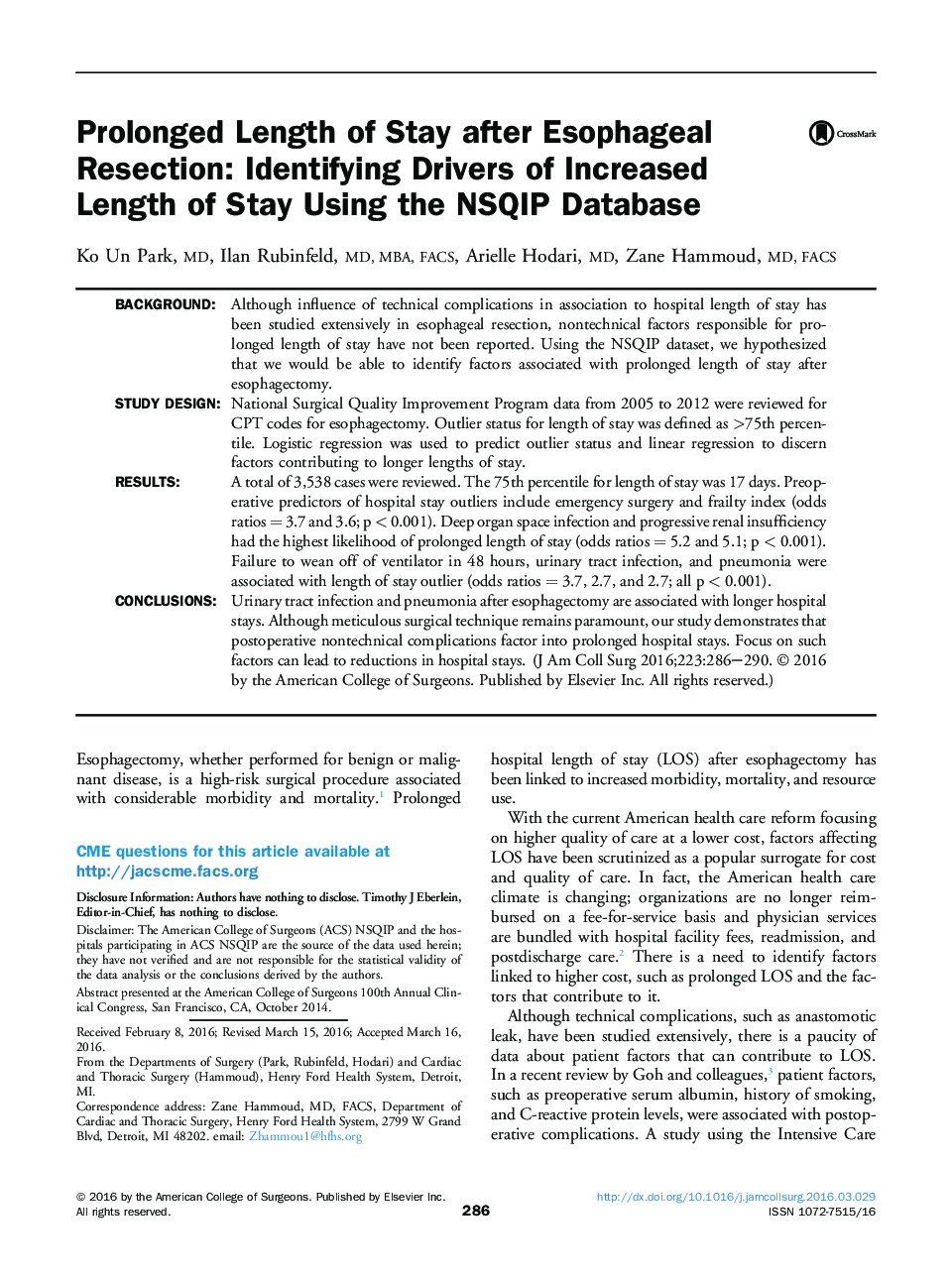| Article ID | Journal | Published Year | Pages | File Type |
|---|---|---|---|---|
| 6252419 | Journal of the American College of Surgeons | 2016 | 5 Pages |
BackgroundAlthough influence of technical complications in association to hospital length of stay has been studied extensively in esophageal resection, nontechnical factors responsible for prolonged length of stay have not been reported. Using the NSQIP dataset, we hypothesized that we would be able to identify factors associated with prolonged length of stay after esophagectomy.Study DesignNational Surgical Quality Improvement Program data from 2005 to 2012 were reviewed for CPT codes for esophagectomy. Outlier status for length of stay was defined as >75th percentile. Logistic regression was used to predict outlier status and linear regression to discern factors contributing to longer lengths of stay.ResultsA total of 3,538 cases were reviewed. The 75th percentile for length of stay was 17 days. Preoperative predictors of hospital stay outliers include emergency surgery and frailty index (odds ratios = 3.7 and 3.6; p < 0.001). Deep organ space infection and progressive renal insufficiency had the highest likelihood of prolonged length of stay (odds ratios = 5.2 and 5.1; p < 0.001). Failure to wean off of ventilator in 48 hours, urinary tract infection, and pneumonia were associated with length of stay outlier (odds ratios = 3.7, 2.7, and 2.7; all p < 0.001).ConclusionsUrinary tract infection and pneumonia after esophagectomy are associated with longer hospital stays. Although meticulous surgical technique remains paramount, our study demonstrates that postoperative nontechnical complications factor into prolonged hospital stays. Focus on such factors can lead to reductions in hospital stays.
